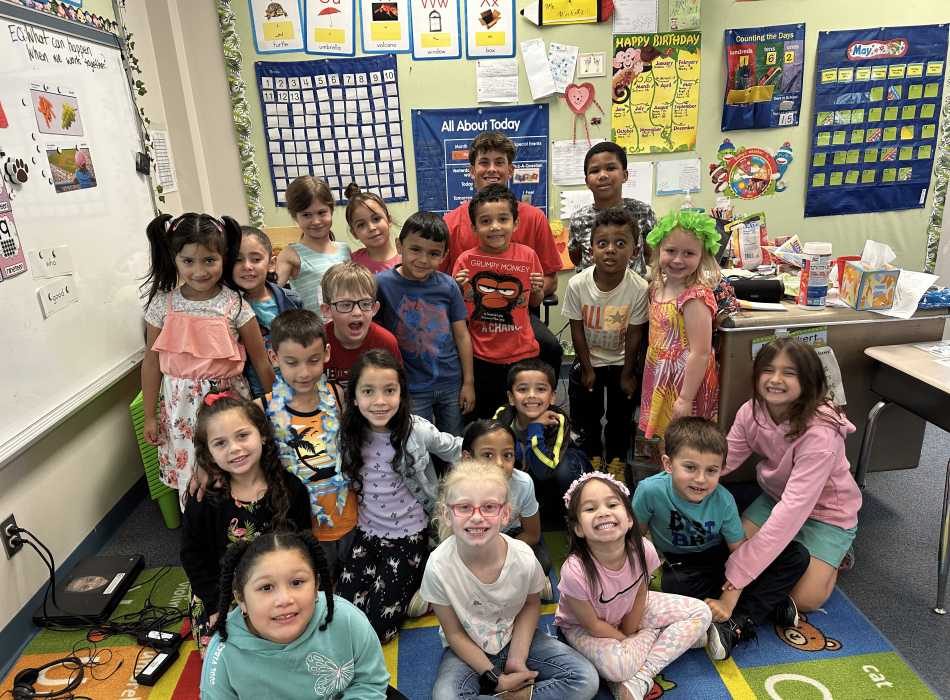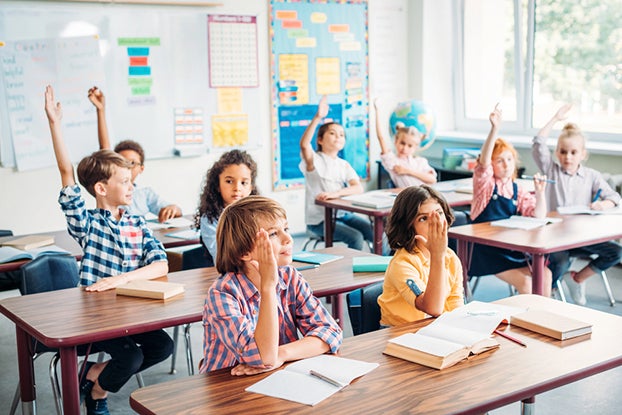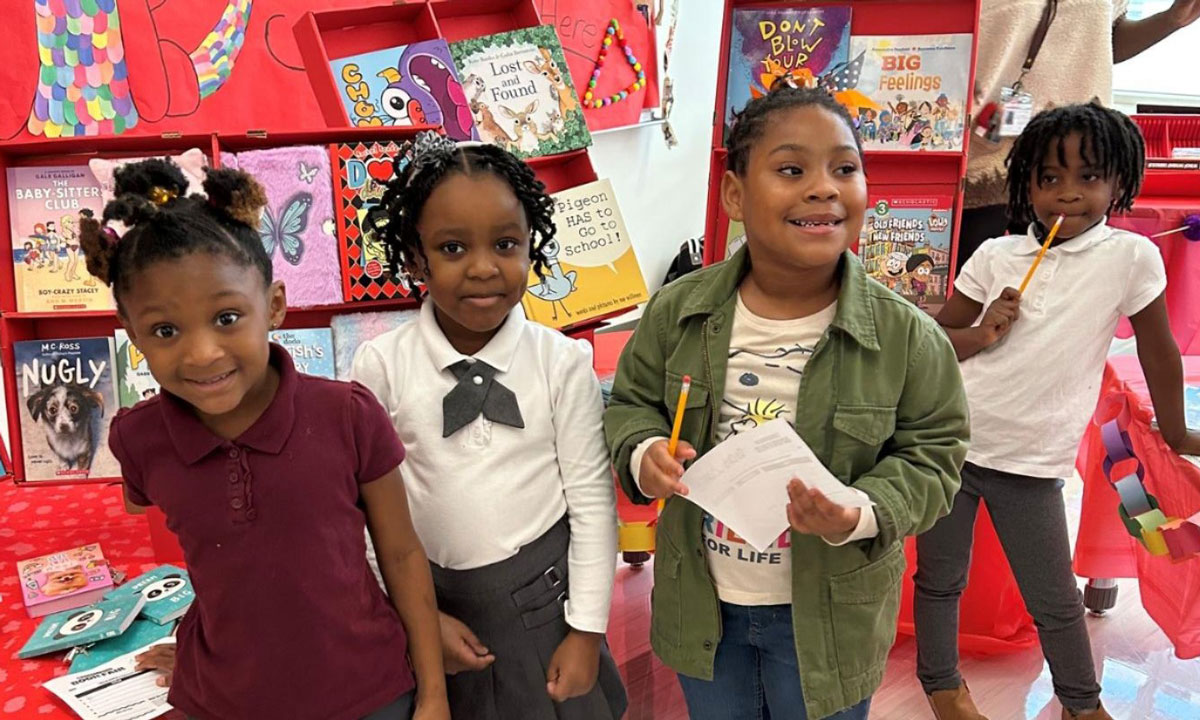Why it matters of emotional resilience in Kindergarten
All Concerning Preschool: Recognizing the Relevance of Early Childhood Years Education Programs
Kindergarten acts as a critical point in a child's early development. It presents fundamental abilities crucial for future learning and social communications. With different tasks, kids participate in organized play that promotes cognitive development. Understanding the nuances of different preschool programs can additionally brighten their relevance. What details benefits do these early education and learning experiences use, and how do they shape a youngster's trajectory? The solutions may be extra complex than one might expect.

The Duty of Preschool in Youngster Advancement
Some may see preschool simply as a transition stage prior to official schooling, it plays a necessary role in child development. This fundamental stage promotes critical social, emotional, and cognitive skills that are critical for long-lasting knowing. In preschool, youngsters participate in structured play, which boosts their capability to coordinate, share, and resolve conflicts with peers. These interactions lay the foundation for healthy and balanced connections and enhanced communication skills.
Furthermore, preschool introduces youngsters to standard principles in proficiency and numeracy, triggering interest and a love for discovering. Teachers assist pupils via tasks that advertise problem-solving and essential thinking, crucial components of intellectual development. The environment emphasizes regular and structure, aiding kids develop self-discipline and freedom. By concentrating on holistic growth, preschool warranties that children are not just prepared academically however also socially and psychologically for the obstacles of future educational endeavors.
Secret Advantages of Very Early Childhood Education
Early youth education offers numerous advantages that can substantially influence a child's advancement and future success. Research study suggests that youngsters that take part in top quality early education programs exhibit enhanced cognitive skills, better language advancement, and boosted social skills compared to their peers that do not attend such programs. These foundational skills are crucial as they set the phase for scholastic achievement and lifelong knowing.
Additionally, very early education and learning cultivates psychological growth by supplying youngsters with opportunities for cooperative play and conflict resolution, aiding them create resilience and empathy. Private School. In addition, these programs frequently aid connect the void for children from diverse backgrounds, making sure equitable accessibility to learning experiences and sources
Inevitably, purchasing very early childhood years education and learning not just benefits private youngsters however likewise adds to more powerful communities, as informed individuals are most likely to engage positively in society and the labor force.
Different Types of Preschool Programs
Numerous preschool programs deal with various educational viewpoints and demands. Full-day choices provide prolonged knowing time, while the Montessori technique stresses independence and hands-on experiences. Additionally, play-based knowing approaches foster creative thinking and social abilities, illustrating the diversity in early childhood education.
Full-Day Kindergarten Options
Many parents and instructors identify the expanding relevance of full-day kindergarten options in early childhood years education and learning. Full-day programs usually offer a more complete knowing experience, permitting kids to take part in a range of activities throughout the day. These alternatives often include a balanced curriculum that integrates scholastic, social, and emotional growth. Some areas offer standard full-day preschool, while others may offer customized programs, such as dual language or thematic understanding environments. Additionally, full-day preschool can suit functioning parents by straightening institution hours with common job schedules. Study suggests that students in full-day programs commonly show enhanced academic performance and social skills contrasted to their peers in half-day setups, making these alternatives significantly popular in several neighborhoods.
Montessori Strategy Summary
The Montessori strategy is just one of lots of educational viewpoints, it has actually acquired significant attention for its unique emphasis on child-led knowing and exploration. Established by Dr. Maria Montessori, this technique focuses on fostering freedom and self-directed activity in kids. Classrooms are normally made to motivate activity and hands-on involvement with materials, allowing kids to discover at their own speed. Montessori teachers function as guides, promoting learning via monitoring instead than straight direction. This method prioritizes mixed-age class, advertising cooperation and peer discovering. Furthermore, the Montessori technique highlights sensible life skills and sensory activities, helping kids create a strong foundation in both social and academic proficiencies. Moms and dads often value the holistic growth that this approach nurtures in their kids.
Play-Based Discovering Techniques
Play-based discovering methods are indispensable to many kindergarten programs, emphasizing the value of play as a fundamental setting of finding out for children. These methods encourage expedition, creative thinking, and social communication, allowing kids to take part in hands-on experiences that foster psychological and cognitive advancement. Numerous types of play, such as creative, positive, and physical play, are used to support learning goals across subjects like literacy, mathematics, and scientific research. Additionally, play-based programs often integrate collective activities, advertising synergy and communication abilities. Educators observe and guide children throughout play, guaranteeing that discovering end results are accomplished while preserving a joyful learning setting. This strategy not just enhances scholastic preparedness but likewise cultivates a lifelong love for understanding, making it a necessary component of early youth education and learning.
The Relevance of Play in Discovering
A substantial body of study highlights this link the crucial function of play in very early childhood education and learning, illustrating its profound influence on understanding and advancement. Play works as a crucial system through which young kids explore their atmosphere, establish cognitive abilities, and enhance their analytical capacities. Participating in creative play enables children to experiment with various roles and situations, cultivating creativity and vital reasoning.
In addition, play-based knowing urges children to involve with products and concepts in a hands-on fashion, making abstract concepts more easy to understand and tangible. This experiential learning approach not only captures youngsters's interest however also advertises intrinsic inspiration, essential for long-lasting knowing.
Via play, youngsters also fine-tune their electric motor skills and spatial understanding, preparing for a lot more complicated academic jobs. Essentially, focusing on play in very early childhood years education and learning programs is vital for nurturing holistic development, equipping youngsters with the fundamental skills essential for their future educational journeys.
Social Abilities Development in Preschool
Building on the foundation established via play, kindergarten acts as a crucial environment for social abilities growth. During this developmental phase, kids take part in structured activities that motivate communication with peers. Via team tasks, cooperative games, and shared jobs, they discover Kindergarten vital skills such as dispute, interaction, and empathy resolution.
Teachers facilitate these communications, directing youngsters in comprehending social hints and fostering positive connections. As youngsters browse different social circumstances, they develop a sense of belonging and learn to value varied perspectives.
Furthermore, kindergarten provides chances for youngsters to exercise turn-taking, sharing, and arrangement, which are essential for developing relationships. These experiences not just enhance social proficiency yet likewise add to psychological intelligence. Because of this, the social abilities obtained in preschool lay the foundation for successful interactions in later academic setups and throughout life. As a result, the significance of social skills development in preschool can not be overemphasized.
Adult Involvement in Early Education And Learning

Furthermore, when parents demonstrate an interest in their kid's education, it cultivates a favorable mindset towards understanding. Youngsters are more probable to establish a sense of belonging and inspiration to succeed when they really feel sustained. Additionally, adult participation can enhance a child's psychological wellness, leading to higher resilience in dealing with school obstacles. Subsequently, promoting a collective atmosphere between home and institution is essential for optimizing early instructional experiences and outcomes.
Getting ready for the Shift to Grade School
As youngsters come close to completion of their kindergarten journey, getting ready for the change to primary school becomes progressively vital. This change calls for careful preparation and support from both moms and dads and educators. Acquainting youngsters with the brand-new atmosphere, regimens, and expectations of grade school can reduce their anxiousness and promote confidence.
Institutions often supply alignment sessions that present children to their future classrooms and instructors, cultivating a sense of belonging. In addition, moms and dads can engage in conversations about the modifications ahead, emphasizing the exciting possibilities for discovering and social communication.
Motivating independence in daily jobs, such as dressing and complying with a routine, can likewise be helpful. Practicing essential abilities, such as letter recognition and standard mathematics, prepares children academically for very first grade.
Ultimately, a joint effort amongst moms and dads, instructors, and the community ensures a smoother change, laying a strong foundation for an effective educational trip.
Regularly Asked Questions
What Qualifications Should Kindergarten Teachers Have?
Kindergarten teachers ought to have a bachelor's degree in early youth education or a related area, together with state certification. Additional credentials why not try this out may include specialized training in youngster development, classroom management, and reliable mentor approaches.
Just how Do I Select the Right Kindergarten Program?
To pick the right preschool program, one ought to consider variables like educational program, teaching approaches, course size, teacher qualifications, and moms and dad reviews. Seeing facilities and observing interactions can additionally offer important understandings into the program's atmosphere.
What Should My Kid Learn in Kindergarten?
In preschool, a child must discover fundamental abilities such as fundamental analysis and writing, counting, social communications, analytic, and electric motor skills. These competencies foster cognitive development and prepare them for future educational challenges.
Are There Age Demands for Preschool Registration?
The majority of states require youngsters to be 5 years of ages by a specific date, commonly September 1st, for kindergarten enrollment. Nonetheless, specific age demands can vary, so checking regional school area regulations is vital.

Exactly How Can I Assistance My Youngster's Knowing at Home?
To sustain a kid's understanding in the house, moms and dads can establish a regular, give engaging instructional products, motivate reading, take part in hands-on activities, and foster open interaction to nurture inquisitiveness and crucial reasoning skills.
Preschool serves as an essential stage in a child's very early development. Some might see kindergarten just as a changeover stage before formal education, it plays an important function in kid advancement. In enhancement, preschool introduces youngsters to standard ideas in proficiency and numeracy, triggering curiosity and a love for learning. Play-based discovering strategies are integral to many preschool programs, highlighting the relevance of play as a basic mode of learning for young youngsters. In preschool, a child should learn foundational abilities such as standard analysis and writing, counting, social communications, analytical, and motor skills.